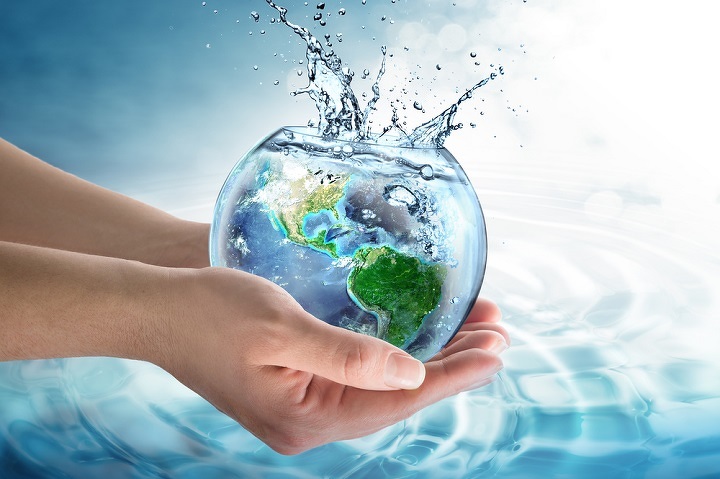Water is all you need
We are used to hearing that natural resources such as oil and gas, minerals and metals are limited and that we might run out very soon. Unfortunately, we often forget that water is also a natural resource, which is vital for all living creatures.
Different countries are endowed with different stocks of freshwater. In terms of renewable freshwater resources, the OECD (2016) places Kazakhstan somewhere in the same league as Greece (6,490 m3), Switzerland (6,585 m3) and Portugal (6,999 m3). Nevertheless, according to the World Resources Institute, Kazakhstan is one of the top 36 countries that annually withdraw more than 80% of its available freshwater resources for domestic, agricultural and industrial use. For a sparsely populated country, this is a significant number. With such a pace, we could run out of easily accessible freshwater sources soon, leaving our future generations with a limited access to this precious natural resource.
In their book, Hoekstra and Chapagain (2009) calculated how much water it takes to produce a good. For example, according to the authors, one hamburger of 150 grams requires 2,400 liters of water, the major part of which is used for sustaining the life of the cow that supplies the beef. A slice of bread requires 40 liters of water, and a cup of tea 35 liters of water. Indeed, all products we consume require freshwater. This is applicable for the production of the natural resources as well. Thus, the economic activity of a country is dependent on the access to freshwater resources. In Kazakhstan, around 70% of freshwater is consumed by the agricultural sector and 25% by the industrial sector. While we haven’t yet run out of freshwater, now is the right time to start thinking of the ways to economize water usage by households, agricultural and industrial sectors. The following are a couple of examples of policies that have helped other developed countries to start using freshwater resources more sustainably.

Policy 1: Increase water tariffs. In most economically developed countries, people pay tariffs on water, heat, and electricity. High prices on water force users to economize the resource. An increase in water tariffs also provides finances to build new water infrastructure and pipelines where needed. Higher water tariffs incentivize farmers to switch from the production of water-intensive crops and implement new technologies to lower the consumption of water. In Kazakhstan, water tariffs should be scaled appropriately according to household income, so that the poorest people can still afford to have water and will not have to pay as high tariffs as wealthier people.
Policy 2: Invest in new technologies. Although expensive, the new technologies will reduce the usage of freshwater resources and minimize the pollution by agricultural and industrial sectors. Drip irrigation, for example, is aimed at reducing water usage in the agricultural sector, while industrial wastewater treatment technologies enable water recycling and reduce the need to use as much freshwater resources.
The abovementioned ways to reduce the water waste are just a small part of what can be done to contribute to the sustainable economic development of the nation, which aims to enter the list of the 30 most developed countries in the world in the near future.

